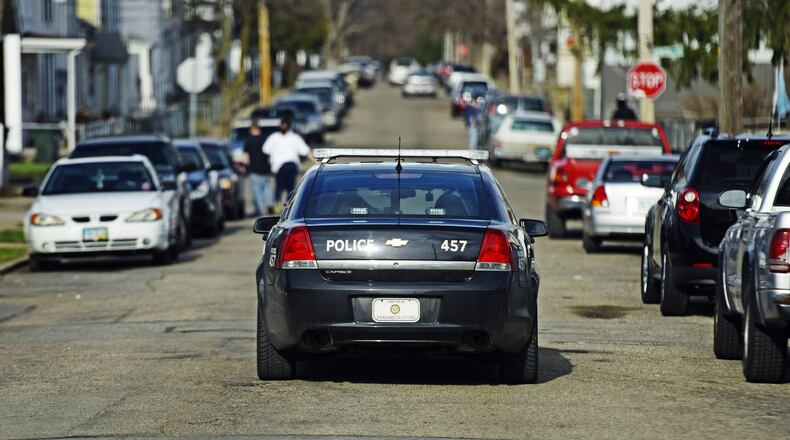Brenda Burer of Dayton Street, who favors it, told council, “I’ve had to deal in the last two months with heroin addicts and dealers.”
“I’m sick of it, and anything you can do to get these things handled, I would greatly appreciate it,” Burer said.
In January, council was considering four ordinances, including a far less popular version of the chronic nuisance nuisance being considered now; legislation that would require registration of landlords and inspection of their apartments; and other legislation that would require landlords to pay utility bills abandoned by their tenants.
After a large crowd showed up opposing all legislation at a meeting earlier this year, City Manager Joshua Smith created an ad-hoc committee of landlords and other property owners to consider all the legislation. Only the chronic nuisance piece has returned, and it may be a while before the ad-hoc committee finds consensus on the others.
Even though the chronic-nuisance legislation was least controversial, some members of the ad-hoc committee expressed some reservations about it, and the Butler-Warren Association of Realtors said it would fight it in court.
Under the proposed nuisance legislation, if an apartment, private home or commercial property has three criminal infractions on three separate days during a 30-day period — or a single felony drug crime — the city manager’s office would be able to examine crimes to see whether they were committed by people living on the property, and other factors. Property owners would then be notified of the violations and would have to develop a plan — such as evicting the criminals — to drive the crime problem away.
If problems continue, the city could issue $250 civil fines to the owners for each later incident, plus the salaries, benefits and other costs for police sent to the scene each time.
Smith said he has received additional input since the city’s Ordinance Review panel had an earlier public hearing May 31, where some members of the public remained concerned about the chronic-nuisance legislation, most forcefully, the Realtors.
The Realtors expressed concerns about property owners’ rights in three areas:
- The need to give owners guideline for how to write plan to eliminate future crime. "I certainly think that we can do something — guidelines, if you will — in that area," Smith announced Wednesday.
- The real-estate agents advocated for owners being notified after the first offense, rather than the third one. Smith said the city does not have "good records of who owns our properties," and would prefer to notify owners, such as through email, on every offense, if it had those email addresses or another quick notification method. Smith said city has asked someone from the county auditor's office attend the next meeting to discuss how the city can get better ownership records. "I would love, in the interim, to work on some type of voluntary registration, where people can enter their name and contact information with respect to different properties. We certainly don't want to wait 'til the end. I mean, the neighborhoods are suffering because of these chronic—nuisance (activities). We want to notify people as quickly as possible."
- The "crime" in question may be unsubstantiated or the perpetrator may be found not-guilty. Smith said the city will examine incidents "on a case-by-case basis" and will not hold owners responsible if random trespassers on their properties or in front of them caused the problems.
Meanwhile, the Realtors’ association asked to have a seat on the ad-hoc committee and were given two, Smith said. Council also can amend the ordinance on June 28, Smith said.
Kelly Umbstead of Oxford and president of the Realtors, thanked officials for their consideration, and possibly tweaking the legislation further.
Resident and owner Karen Underwood said she supported the legislation, and noted a property could have one incident per month for 36 straight months and never be in danger of being declared a nuisance unless one of the offenses is a felony drug crime.
Not all who spoke during the public hearing were satisfied.
Resident Ashlee Willis said she supported the ordinance, but is deeply concerned it may “silence victims of crime, especially victims of domestic violence, where you have a perpetrator and a victim in the same family — they may have even signed the same lease.”
Willis observed that can cause complicated issue for victims, the city and landlords.
MORE: MORE: Hamilton considers requiring apartment owners to register
Landlord Dennis Owens told council, “you can’t screen everybody out of your properties,” for a number of reasons, including giving people chances in life. He said a friend recently was fined $5,000 after picking a white tenant over two prospective black ones.
Art Sauerwein, who owns 20 Hamilton rental units, asked, “What happened to the due process of the person being charged with a crime?” He added: “I’m just a little sketchy about all this legislation, and the city overstepping their bounds into our lives…. I’ve got rights, the people who live at my property have rights, and everybody’s entitled to being heard by a jury or a judge.”
So the guilt or innocence will not always be determined before a chronic-nuisance declaration may be issued, he said. He argued some city-owned properties are in nuisance shape themselves by their condition, and argued the city is not always fair in dealing with landlords and owners. He said he had to go to common pleas court to halt the demolition of “a beautiful house” he just bought that had windows boarded up.
“The person making the judgment call to tear that house down was not qualified to make that decision,” Sauerwein said. “And I went thorough a lot of trouble for that. And that’s why I’m worried about this legislation.”
About the Author
